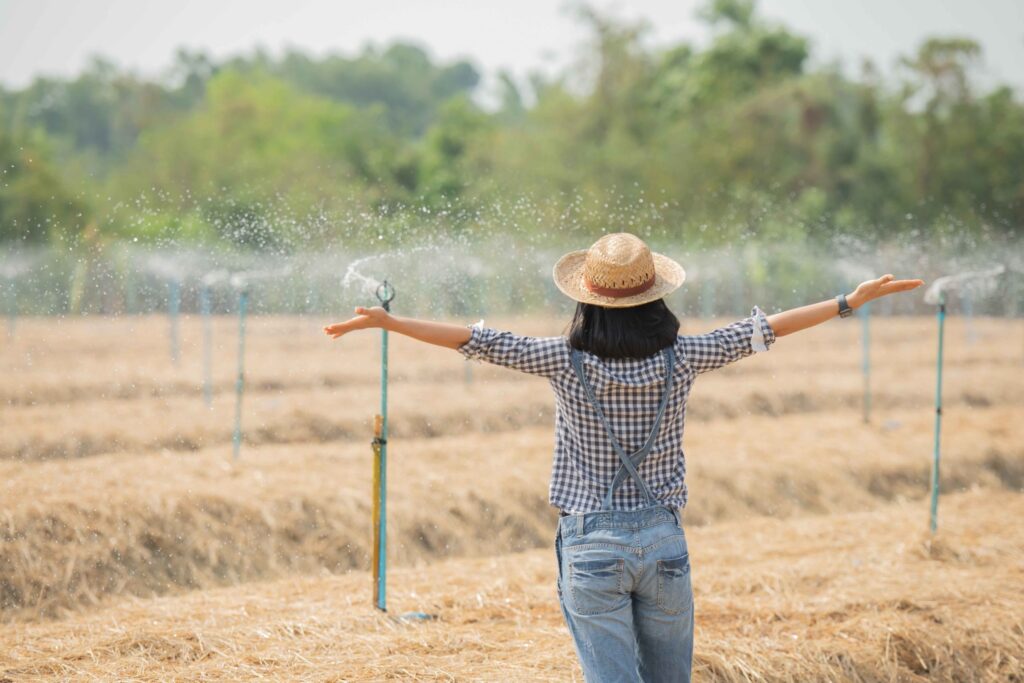The quality of the air around us is defined as clean or polluted. Consider the mood to be an unseen blanket that covers the Earth. This air may contain contaminants that are hazardous to our health.
These are known as “pollutants,” they can come from cars, factories, or even natural sources such as dust and pollen. When there are too many pollutants in the air, it can be harmful to our health, making it difficult to breathe or making us sick. As a result, preserving the air as clean as possible is critical by not polluting it excessively, planting trees, and using clean energy. That way, we may all breathe clean, healthy air!
Agriculture and Air Pollution: How Are They Related?
Agriculture and air pollution are linked because some farming activities can pollute the air. When farmers utilize large machines like tractors and sprayers, these devices can emit foul odors, similar to how a car emits smoke. Furthermore, when farmers use chemicals to help their plants grow, such as pesticides and fertilizers, they can sometimes leak into the air and make breathing unhealthy.
Another issue is that farms with many animals, such as cows and pigs, can emit methane, which is also bad for the air. Farmers, on the other hand, are looking for ways to be more cautious and use fewer of these chemicals and glasses to reduce their impact on the environment. They’re also planting trees and making farming more environmentally friendly. While farming and air pollution are linked, many are working to make farming cleaner and safer for the environment.
What Effect Does Farming Have on Air Quality?

Depending on how it is done, farming can have both positive and harmful effects on air quality. Here are some of the ways agriculture can have an impact on air quality:
1. Positive Effects
-
Oxygen Production
Plants emit oxygen into the air through photosynthesis, which people and animals need to breathe.
-
Carbon Dioxide Absorption
During photosynthesis, plants, particularly farm crops, absorb atmospheric carbon dioxide. This helps to reduce the quantities of this greenhouse gas in the atmosphere, which benefits the environment.
-
Reduced Urban Pollution
Farming is commonly done in rural regions, and having green fields and forests in these locations can help filter out some air pollutants, providing better air to adjacent cities and towns.
2. Negative Effects
-
Air Pollution from Farming Practices
Some farming activities might pollute the air. For example, machinery such as tractors and combines can produce exhaust fumes containing toxic substances.
-
Dust and Particulate Matter
Tilling soil and driving vehicles on fields can generate dust and tiny particles transported by the wind and impact air quality.
-
Livestock Emissions
Methane, a potent greenhouse gas contributing to climate change, can be produced through animal farming, such as breeding cows, pigs, and chickens.
-
Pesticides and Fertilizers
Pesticides and fertilizers used in farming can emit toxins into the atmosphere. If not utilized properly, these substances might contribute to air pollution.
Strategies known as “sustainable agriculture” focus on decreasing pollution, preserving resources, and safeguarding the environment to reduce the detrimental effects of farming on air quality.
These practices include using fewer chemicals, using precision farming techniques, and the promotion of agroforestry, which mixes farming with tree planting to help clean the air and enhance general environmental health.
Sampoerna Academy
Sampoerna Academy is not just a school; it is an academic institution shaping the education future in Indonesia. With its innovative approach to teaching and learning, Sampoerna Academy is empowering the next generation of leaders and thinkers to take on the challenges of the future with confidence and creativity. By joining Sampoerna Academy, you invest in your child’s future and contribute to developing a brighter and more prosperous Indonesia.
Sampoerna Academy is at the forefront of shaping the future of education. With its innovative and holistic approach to learning, it is not only preparing students for academic success but also for their future careers. By joining Sampoerna Academy, you will be a part of a community committed to creating a brighter future for the next generation. Take advantage of this opportunity to be a part of something genuinely impactful and influential.
Joining Sampoerna Academy is the perfect choice for your child, with an education that will prepare them for the future. With its innovative curriculum, experienced teachers, and commitment to excellence, Sampoerna Academy offers a unique learning experience that will equip your child with the skills and knowledge they need to succeed in the 21st century.
Take advantage of this opportunity to give your child the best possible start in life. Immediately register to take part in admitting new students for the 2023-2024 academic year here. Our Recruitment Team will contact you soon to provide more detailed information.
Download Sampoerna Academy Booklet for Free!





